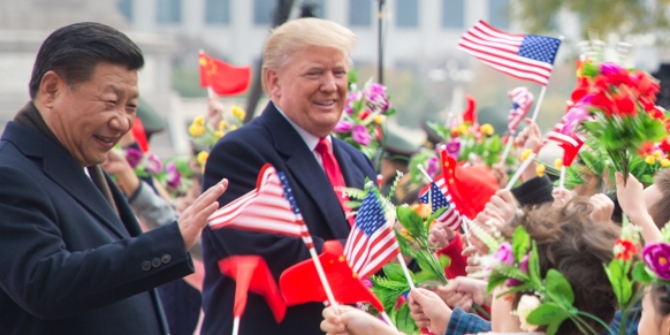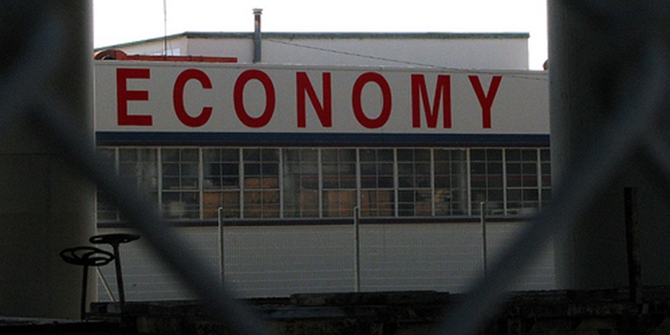Climate Change and Human Development offers a compendium of real life scenarios and brings home the realities of how poor people are suffering from and coping with climate change impacts today. Michael Bassey recommends this book to all who worry about the global future.
 Climate Change and Human Development. Hannah Reid. Zed Books. London. 2014. Find this book:
Climate Change and Human Development. Hannah Reid. Zed Books. London. 2014. Find this book: ![]()
![]()
Hannah Reid has compiled a remarkable book. Drawing on world-wide reports from the 25 members of the Up in Smoke group (including Christian Aid, Friends of the Earth, Greenpeace, New Economics Foundation, Oxfam, Practical Action, Water Aid and WWF) she indicates the awfulness of the lives of many of the earth’s poor people and how this is worsened by climate change arising from man-made global warming caused mainly by the earth’s richer people.
She writes that “more than forty scientific societies and academies of science, including all of the national academies of science of the major industrial countries [agree] that the earth’s climate is being modified by human activities.” These include burning fossil fuels, large-scale deforestation, industrial agricultural practice, and the growth of cities.
Yet others are in denial: between 2002 and 2010, anonymous billionaires “donated nearly US$120 million to more than a hundred anti-climate change groups”. Incredible! Year by year, extreme weather events such as hurricanes and droughts become more frequent and more severe making it harder for the global poor to survive, stay healthy and earn a living. Reid comments that those worst hit by climate change actually produce the lowest greenhouse gas emissions. The industrial countries, responsible for most greenhouse gas emissions, are nevertheless better protected against climate change because of the infrastructures that their wealth has created. This leads her to note that climate change debate has moved from concern to mitigate the effects, to efforts to adapt to the changes, and recently to issues of global justice about how the rich should acknowledge the damage they are doing and compensate the poor.

Beyond the gloom Reid gives some messages of hope in vignettes of how some of the poor of the world have responded positively to environmental problems. For example, In an area of southern Mozambique, severe floods in the lowlands in some years destroy otherwise good crops of rice, vegetables and potatoes, while in the highlands in other years severe droughts reduce the yields of maize and cassava. Villagers have gained plots in highlands and lowlands by coming together in farming associations and by lobbying for land allocation. They have also strengthened their livelihoods in the face of climate change by sharing produce.
In the Quechua, Peru, many isolated communities live over 3,500 metres above sea level. They grow maize, potatoes and beans, with many families having a few animals including guinea pigs (a staple food in the Andes). In recent years, extreme cold in winter (known as “friaje”) has caused widespread illness. People and many alpacas have died with the cold. These winters have been followed by hot, dry summers which have affected crops. Practical Action stepped in to train farmer-to-farmer agents, known as “Kamayoq”. Sheds were built for baby alpacas, alfalfa were grown hydroponically for forage, irrigation developed, and through farmer-led experimentation, fungal disease of maize and mildew on onions were controlled. Improved breeding techniques for guinea pigs resulted in bigger animals. All of this has increased the ability of these farmers to cope with the impacts of climate change.
The Evangelical Fellowship of Zambia (EFZ) trains people in ‘conservation farming’, which is a minimum tillage method that traps moisture, improves soil quality, minimises soil erosion and creates drought-tolerant growing conditions. This helps communities cope with changing rainfall patterns by becoming more self-sufficient in the face of drought. In Rajasthan, India, rainfall has been increasingly erratic. In the village of Vahigata water levels in wells were sinking and as a result, agricultural production declined. The farmers were planning to leave the village until Caritas India stepped in with a project to drought-proof the village through the conservation of soil, water and biomass. Farm bunds, dams and contour trenches conserved monsoon water, decreased run off and reduced soil erosion. Water levels in wells are now rising and agricultural productivity and the area of cultivated land have increased.
In two remote areas of Mount Kenya, Kathama and Thima, community hydropower schemes serve over 200 households. The communities provided building materials, land for the turbine house, labour and finance, under the guidance of Practical Action East Africa in collaboration with Nottingham Trent University and the Kenya government. The communities now manage, operate and maintain the project on their own and share their experiences with other communities across the country. The project has been self-sustaining for several years.
In Bangladesh, Practical Action has been working with flood-affected communities to increase their resilience to floods through Participatory Technology Development. Farmers and communities identify and experiment with different technological options, followed by self-assessment and reflection. For example, digging pits and enriching the sandy soil with manure helps people grow vegetables at home: sticks mark the pits location during flooding. Small seasonal ponds for breeding native fish with cages when the floods come have been a success.
The final chapter is positive and ambitious: it explores the three challenges posed by the Up in Smoke coalition. First: how to stop and reverse global warming; second: how to live with the degree of global warming that cannot be stopped; third: how to design a new model for human progress and development that is climate-proof, climate-friendly and gives everyone a fair share of the natural resources on which we all depend.
In telling words Reid ends the book saying, “we are already surrounded by a sleeping architecture of better ways to organize our economies, communities and livelihoods…The task is now to act.” That is why this book should be widely read.
This review originally appeared at the LSE Review of Books.
Please read our comments policy before commenting.
Note: This article gives the views of the authors, and not the position of USApp– American Politics and Policy, nor of the London School of Economics.
Shortened URL for this post: http://bit.ly/1xGvY2R
——————————————–
Michael Bassey – Nottingham Trent University
Michael Bassey is an emeritus professor of Nottingham Trent University and a Fellow of the Academy of Social Sciences. His most recent book is Convivial Policies for the Inevitable: global warming, peak oil, economic chaos. Feature image credit: America’s Power, CC BY 2.0







Global warming has been the subject of arduous debates for more than 20 years. And most of the claims say that modern civilization is responsible for the higher atmospheric temperatures, which were caused by man-made greenhouse gases. The Inter-Governmental Panel on Climate Change (IPCC), active since 1988, is the main supporter of this thesis. The oceans affected by naval and merchant ships operating and sailing the seas back and forth should have been the hottest topic in the debate on climate change since meteorology was established as a science in the late 19th century. Instead of that, oceans were ignored up to the late 20th century and not even today do they enjoy the significant position they deserve. Oceans are a decisive climatic force, the second after the sun.You can find more at http://www.1ocean-1climate.com. There is the ‘Booklet on Naval War changes Climate’, written by Arnd Bernaerts.